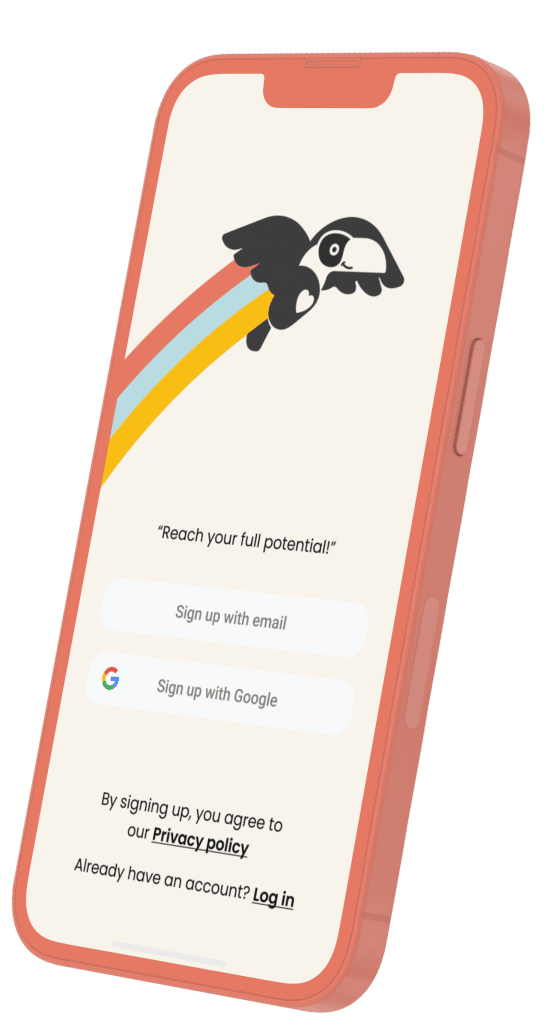In the course of the pandemic-related work-from-home policies of companies, the mental health of employees has increasingly come into focus.
A buzzword that has been on everyone’s lips ever since is emotional intelligence.
In this blog post, we shed light on what emotional intelligence is, why it is particularly important for startups, and how it can be trained.
What is Emotional Intelligence?
Emotional intelligence (EQ) is the ability to recognize, understand and manage your own emotions and the emotions of others. Successfully managing emotions often requires perceiving what we are feeling (or someone else) and understanding where the emotions stem from.
This makes it a crucial underlying skill for self-control and relationship management.
Why do I need to pay attention to my feelings?
Studies have shown that individuals with high emotional intelligence tend to have better relationships, communicate more effectively, and make better decisions. Besides these upsides, another study found that individuals with high EQ earned an average of $29,000 more per year than those with low EQ.
Apart from these general advantages and effects, a deeper look shows why EQ is especially indispensable for startups and employees.
Managing emotions adaptively
A key pillar of successful emotion management is adaptivity. While we have many strategies to regulate our emotions at our disposal, such as reappraising aspects of the situation we are in, accepting negative emotions or suppressing them, none is effective in every situation.
For example, positively reframing a stressful situation that you encountered with your S.O. in the morning, might work while on the bus to work but not during a demanding meeting, as your mental resources are needed elsewhere.
In that case, suppressing your feelings could be more successful as it frees up resources to focus on the meeting. Recognizing your and the situation’s limitations and adapting your strategy is called emotion regulation flexibility.
Adaptive emotion regulation is a superpower
Ultimately, which strategy we should choose depends on the current context. The context depends on the situation we find ourselves in and our current physical and mental state. High pressure and mental loads combined with the ever-changing situational demands of the startup world pose a real challenge to our emotion regulation.
It is worth investing time to find out in which situations and states we are stressed.
Some signs may be that we want to stimulate or distract ourselves (from strong feelings).
In addition, we would like to share 5 proven methods that help to raise your EQ.
5 proven methods that help to raise your EQ
- Practice mindfulness: One of the keys to emotional intelligence is being aware of your own emotions and how they impact your thoughts and actions. Mindfulness, or the practice of focusing on the present moment, can help you become more attuned to your emotions. Try incorporating mindfulness techniques, such as meditation or deep breathing, into your daily routine.
Pausing, when you notice some physical triggers (fast heartbeat, or shallow breathing) to pay attention to the feeling itself and understand what triggered it, really helps to improve your emotional self-awareness. - Keeping an emotion diary: Reflecting on emotional situations, including triggers, thoughts, and reactions, can be a real game-changer in understanding certain patterns.
- Seek feedback: Another way to improve your emotional intelligence is to seek feedback from others. This can help you understand how your emotions and behaviors are perceived by others and give you the opportunity to make changes. Ask trusted colleagues or friends for their honest feedback, and be open to hearing what they have to say.
- Practice empathy: Empathy is the ability to understand and share the feelings of others. To improve your empathy skills, try to put yourself in others’ shoes and try to understand their perspective. This can help you build better relationships with your team and customers. It can be powerful to incorporate this into a coaching program for leaders.
- And finally: Try out the HROS.io Emotional Intelligence Test, to find out what emotion regulation type you are, what your EQ score is, and how you can improve it based on your results
Feel free to experiment with different methods. What suits you personally is a very individual question.
And remember a basic awareness of how emotions influence work is a cornerstone for a mental health-friendly workplace to which everyone can contribute.
Want to know more about YOUR emotional intelligence? Take our test on the Career Coach and learn more about your emotional intelligence today. Take the test now!


